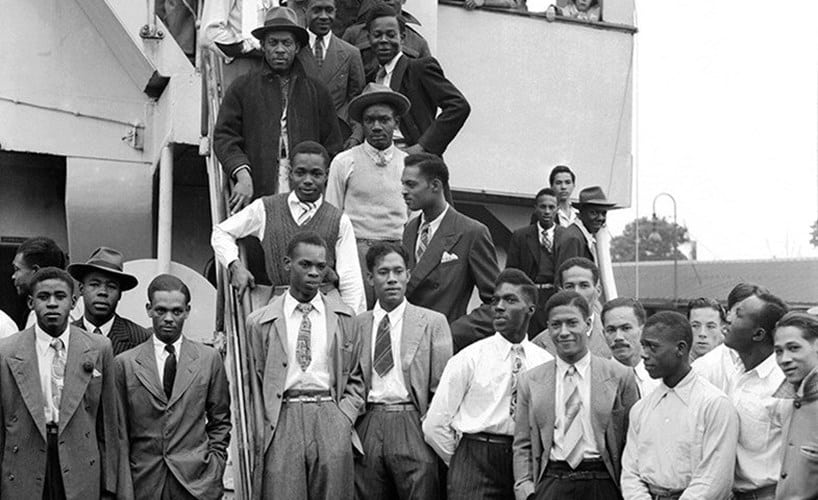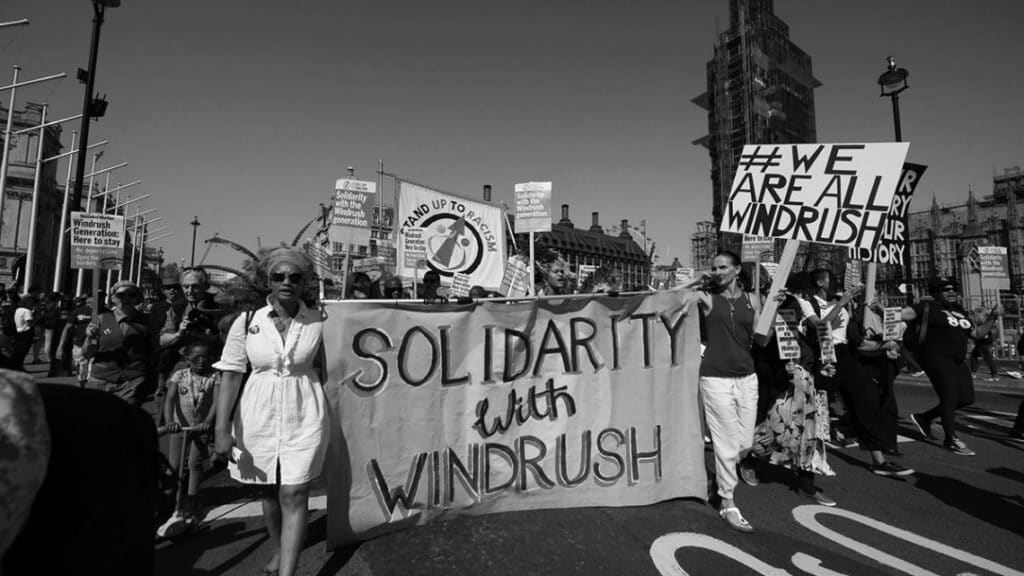In the month of June, we commemorate the HMT Empire Windrush for its significant role in bringing one of the first large groups of post-war West Indian immigrants to the United Kingdom.
This renowned ship embarked on a voyage from Jamaica to London in 1948, carrying 1027 passengers and two stowaways.
On the 21st of June 1948, the HMT Empire Windrush arrived at the Port of Tilbury, and its passengers disembarked a day later.
Among the 492 Caribbean migrants aboard were many veterans of the Second World War. This ship and its passengers hold symbolic status as the pioneers of the Windrush Generation.
Following World War II, Britain actively encouraged immigration from Commonwealth countries to aid in the country’s post-war reconstruction, as there was a severe shortage of labour.
The Empire Windrush carried 492 migrants who were seeking prosperity and employment in the UK.
Arriving at the Tilbury docks in Essex in June 1948, it brought hundreds of passengers from the Caribbean, representing one of the first major groups of post-war West Indian immigrants to enter the UK.

The Windrush Generation: Who are they?
The term “Windrush generation” refers to those who arrived in the UK from Caribbean countries between 1948 and 1973.
Many of them filled crucial roles in sectors affected by Britain’s labour shortage after the war, including the nascent National Health Service (NHS).
The name “Windrush” originates from the ship HMT Empire Windrush, which played a pivotal role in transporting one of the initial large groups of Caribbean immigrants to the UK in 1948.
Since the Caribbean was part of the British Commonwealth at the time, those who arrived were automatically British subjects and had the freedom to live and work permanently in the UK.

Understanding the Windrush Scandal
The Windrush scandal came to light in 2017 when it was revealed that numerous Commonwealth citizens, predominantly from the Windrush generation, had been wrongly detained, deported, and deprived of their legal rights, Amelia Gentleman, a journalist from The Guardian, conducted investigations and began reporting on their experiences.
As these distressing stories made headlines, Caribbean leaders raised the issue with then-Prime Minister Theresa May.
The revelation that many Black Britons had their lives shattered due to Britain’s deeply flawed and discriminatory immigration system caused widespread shock and outrage.
The government’s “Hostile Environment” legislation, introduced in 2012, affected Commonwealth citizens by delegating immigration control enforcement responsibilities to various entities such as the NHS, landlords, banks, and employers.
Its objective was to make life unbearable for undocumented migrants, compelling them to leave the UK.
The Windrush generation encountered significant challenges due to their arrival as children on their parent’s passports.
Additionally, the Home Office destroyed numerous landing cards and records, resulting in a lack of documentation to prove their right to remain in the UK.
Individuals were burdened with the task of providing evidence of their residency dating back to before 1973, with the Home Office demanding at least one official document for each year of their stay.
Locating decades-old documents proved to be an enormous, and often impossible, burden for those who had done nothing wrong.
Wrongly labeled as “illegal immigrants” or “undocumented migrants,” they gradually lost access to housing, healthcare, bank accounts, and driving licenses.
Many were detained for immigration purposes, restricted from traveling abroad, and faced threats of forced removal.
Some were even deported to countries they had not seen since childhood.
The unjust treatment of the Windrush generation led to widespread condemnation of the government’s failure in handling the matter, resulting in calls for significant reform of the Home Office and the UK’s immigration policy.
In response to these demands, then-Home Secretary Sajid Javid announced in May 2018 that the Home Office would commission a “Windrush Lessons Learned Review.”
Ongoing Struggle for Justice
For those impacted by the Windrush scandal, justice remains elusive.
A substantial backlog of cases still awaits resolution, and the Windrush compensation scheme has proven to be a failure.
The scheme’s complexity, lack of accessible legal advice, lengthy processing times for claims, and insultingly small compensation offers have exacerbated the suffering of those affected.
Moreover, the policies that led to this scandal remain in place.
The “Hostile Environment,” which denies a safety net to individuals without the correct documentation, persists even during the Covid-19 outbreak, disregarding repeated calls for its suspension from those affected by its rules.
The government promised to uncover the root causes of the Windrush scandal and learn from its mistakes.
An independent review conducted by Wendy Williams, Her Majesty’s Chief Inspector of the Constabulary, was published on March 19, 2020, almost two years after the scandal first garnered attention.
The review unequivocally asserts that the Windrush scandal was not an accident but rather the inevitable outcome of policies designed to make life unbearable for individuals lacking proper documentation.

Coupled with decades of immigration legislation explicitly aimed at reducing non-white immigration from Commonwealth countries, these policies devastated the lives of many Black and minority ethnic British people.
Broken Promises and Lingering Issues
In September 2020, the Home Office released an action plan, with the Home Secretary claiming it would “deliver for the Windrush generation” and introduce “people-focused policies” within the department.
However, the plan lacks substance, employs evasive language, and deliberately misinterprets recommendations from Wendy Williams’ report.
It fails to address crucial issues, such as the “Hostile Environment,” directly and demonstrates a clear determination to maintain the status quo.
A report by the Home Affairs Select Committee in November 2021, composed of influential MPs, revealed that only 5.8% of eligible individuals had received compensation payments.
Shockingly, 23 people who were owed compensation have since passed away without receiving a penny.
An independent report in March 2022 warned that the Home Office is at risk of creating another Windrush-style scandal if it does not enact meaningful changes to its culture, systems, and policies.
In January 2023, the Home Office, under Suella Braverman, indicated its abandonment of the action plan. The department has now reneged on key promises made to “right the wrongs” of the scandal.

The fight for justice for the Windrush Generation continues, and their struggle should serve as a rallying cry for all those who seek a fair and equitable society.



